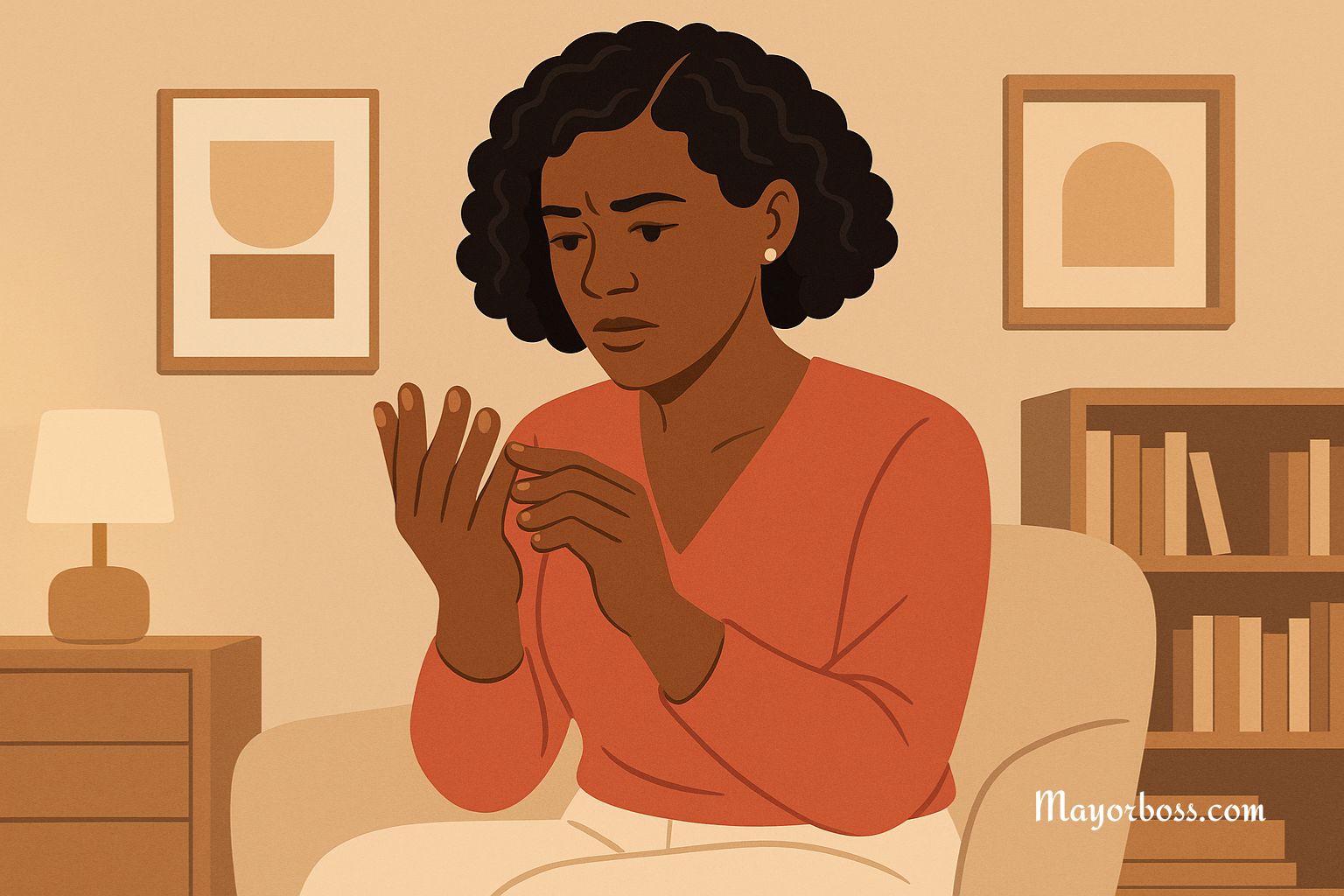The Finger Warning Sign That Could Mean Heart Failure
Heart failure is a serious condition where the heart struggles to pump blood effectively throughout the body. Many people think only of chest pain or shortness of breath as warning signs. However, some early clues are much easier to miss. One surprising symptom can show up right at your fingertips. Keep reading to learn about it.

What Is Heart Failure?
Despite its name, heart failure does not imply the heart has stopped working. Instead, it means the heart is weakened or too stiff to pump blood the way it should. When this happens, the body does not get enough oxygen and nutrients. Over time, this can cause a wide range of problems, from swelling in the legs to trouble breathing.
The sooner heart failure is found, the better the chances of managing it well. That is why recognizing even subtle signs matters.
A Finger Symptom You Should Not Ignore
One little-known sign is clubbing of the fingers. Clubbing means the tips of the fingers become swollen and the nails curve downward more than usual. At first, you might only notice that your nails look rounder or that your fingertips seem puffier.
Clubbing usually happens slowly over time. Many people are unaware of the changes until someone else points them out. Yet this symptom can be an early warning sign of heart and lung problems, including heart failure.
Why Does Clubbing Happen?
When the heart is not pumping properly, parts of the body may not receive enough oxygen. Fingers and toes are especially sensitive to changes in blood flow. A lack of oxygen can cause tissues at the tips of the fingers to grow abnormally, making them look larger and more rounded.
Clubbing often appears in people with chronic health conditions, such as:
- Heart failure
- Congenital heart defects (problems with the heart’s structure present at birth)
- Lung diseases like pulmonary fibrosis or lung cancer
- Certain infections of the heart (like infective endocarditis)
If you notice changes in your fingertips and have other symptoms like tiredness, shortness of breath, or swelling in your legs, it is important to see a doctor.
How to Recognize Finger Clubbing
It can be tricky to tell if finger clubbing is happening. Here are some signs to look for:
- The base of the nail feels soft or “spongy.”
- The nails curve more than usual when viewed from the side.
- The angle between the nail and the skin at the base becomes more than 180 degrees.
- The tips of the fingers look rounder or more swollen than before.
One simple test is the Schamroth window test. Place the tips of two corresponding fingers (like both index fingers) back-to-back. Normally, there should be a small diamond-shaped gap between the nails. If that gap is missing, it might suggest clubbing.
Other Subtle Symptoms of Heart Failure
Finger clubbing is not the only subtle sign. Heart failure can also cause:
- Unexplained weight gain due to fluid buildup
- Feeling very tired, even after resting
- Swelling in the ankles, feet, or abdomen
- Persistent coughing or wheezing, sometimes with white or pink mucus
- Trouble concentrating or feeling mentally foggy
Often, these symptoms start mild and become worse over time. Listening to your body and noticing small changes can help catch problems early.
When to See a Doctor
If you notice clubbing of your fingers or any new or worsening symptoms, it is important to talk to a doctor. A physical exam, chest X-ray, echocardiogram, or blood tests might be needed to find out what is going on.
Even if clubbing turns out to be caused by something else, finding the reason early can protect your health.
Can Finger Clubbing Be Treated?
Finger clubbing itself is not treated directly. Instead, doctors focus on treating the main underlying cause, such as heart failure. When the heart condition improves, the clubbing sometimes stops progressing. However, in many cases, the changes to the fingers may not completely reverse.
Managing heart failure usually includes:
- Taking prescribed medications (such as diuretics, beta-blockers, or ACE inhibitors)
- Following a low-sodium diet
- Monitoring fluid intake
- Staying active as recommended
- Attending regular medical checkups
Early diagnosis and good management can help slow the progression of heart failure and improve quality of life.
Final Thoughts
The body often gives small signals when something is wrong. Clubbing of the fingers is one such signal that many people do not associate with heart disease.
Paying attention to changes in your nails and fingertips — along with noticing how you feel overall — can help catch heart failure early. If you have any concerns, especially if you also experience tiredness, swelling, or breathing problems, do not wait to seek medical advice.






